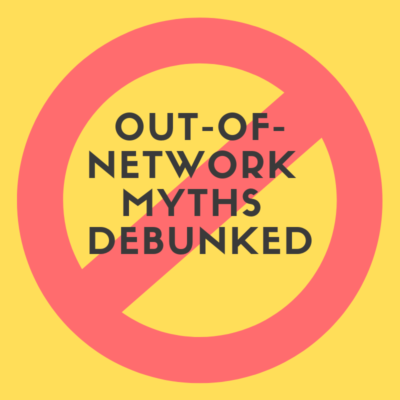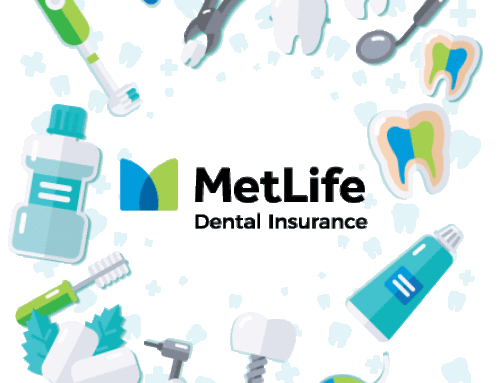Out-of-network dentist myths debunked
 The majority of dental plans, whether they are through an employer or not, are PPO plans. PPO stands for Preferred Provider Organizations. What this means, is that your plan can be used at both preferred providers (aka in-network) and non-preferred providers (aka out-of-network). Believe it or not, most people don’t understand how PPO plans work. They think they have to choose an in-network dentist.
The majority of dental plans, whether they are through an employer or not, are PPO plans. PPO stands for Preferred Provider Organizations. What this means, is that your plan can be used at both preferred providers (aka in-network) and non-preferred providers (aka out-of-network). Believe it or not, most people don’t understand how PPO plans work. They think they have to choose an in-network dentist.
My goal is to tell you the truth about out-of-network dentists. Rather than start from scratch, I’m going to use Delta Dental’s own website. They have a page titled Get the Most Out of Your Benefits With an In-network Dentist which gives 4 reasons why they think you should choose an in-network dentist.
Myth 1: Discounts
“Delta Dental network dentists agree to accept predetermined fees for services, which are usually discounted from typical charges. Delta Dental network dentists also agree not to bill patients for differences between the Delta Dental contracted fees and their typical charges.”
The first line is actually true. When a dentist signs the Delta Dental network contract, they agree to accept lower fees for services, which are actually significantly lower than their normal office fees. Why would a dentist do this? Dentists are led to believe that the volume of patients they will receive from the insurance company will offset their losses. Unfortunately, that argument doesn’t make much sense. A dentist will have to treat more insurance patients to make the same amount of income…
The second line implies that out-of-network dentists will always charge patients the difference between what the insurance company pays, and what the dentist’s office fee is. Unfortunately, many dentists do this, which is a shame. At our office nearly 100% of the time, we accept what the insurance pays as payment in full for preventive care. Why nearly 100% and not 100%? Well, some plans don’t pay any out-of-network benefits. However, if your cleaning is covered at 100% at an in-network dentist, it will be covered 100% at our office. Why? I think patients should have the freedom to use their benefits wherever they’d like. If we charged patients with insurance out of pocket costs for cleanings and exams, we wouldn’t have many patients!
Myth 2: There’s no waiting for reimbursement
“When you are treated by a Delta Dental network dentist, you don’t have to pay the entire bill and wait for reimbursement from Delta Dental. Instead, we pay your in-network dentist directly and send you a notice (Explanation of Benefits (EOB) statement) explaining your portion of the bill. You pay only the amount indicated in the statement.”
False. It is rare for a dentist to force you to pay up front for your dental care. When you make an appointment at my office, I check your benefits and determine whether or not you are eligible (you actually have insurance) and can use your benefits where you’d like (you have a PPO plan). If you can use your benefits at our office, I would never demand payment up from when I know that I will be reimbursed from an insurance company. That’s just bad customer service!
Myth 3: Less paperwork
“Delta Dental network dentists handle all claims forms and other paperwork, making it as easy as possible to help you get the care you need.”
False. I’ve never heard of a dentist make their patients file their dental claims. We file dozens of claims every day, why would I ask the patient to do it, when they’ve likely never filed a claim in their life?
Myth 4: Only the best
“All Delta Dental network dentists must meet professionally required credentialing standards. Delta Dental re-credentials providers regularly to ensure standards are maintained.”
False. It is incredibly misleading to state that only the best dentists can be contracted with an insurance company. Do you know what it takes to be credentialed? You need to fill out a form that says you aren’t a criminal, don’t use drugs, etc. You also need to provide proof that you are a licensed dentist, as well as proof of malpractice insurance. I think that’s about it. When you think about it, if a dentist was ‘the best’, why would he or she be signing contracts with insurance companies in the first place?



